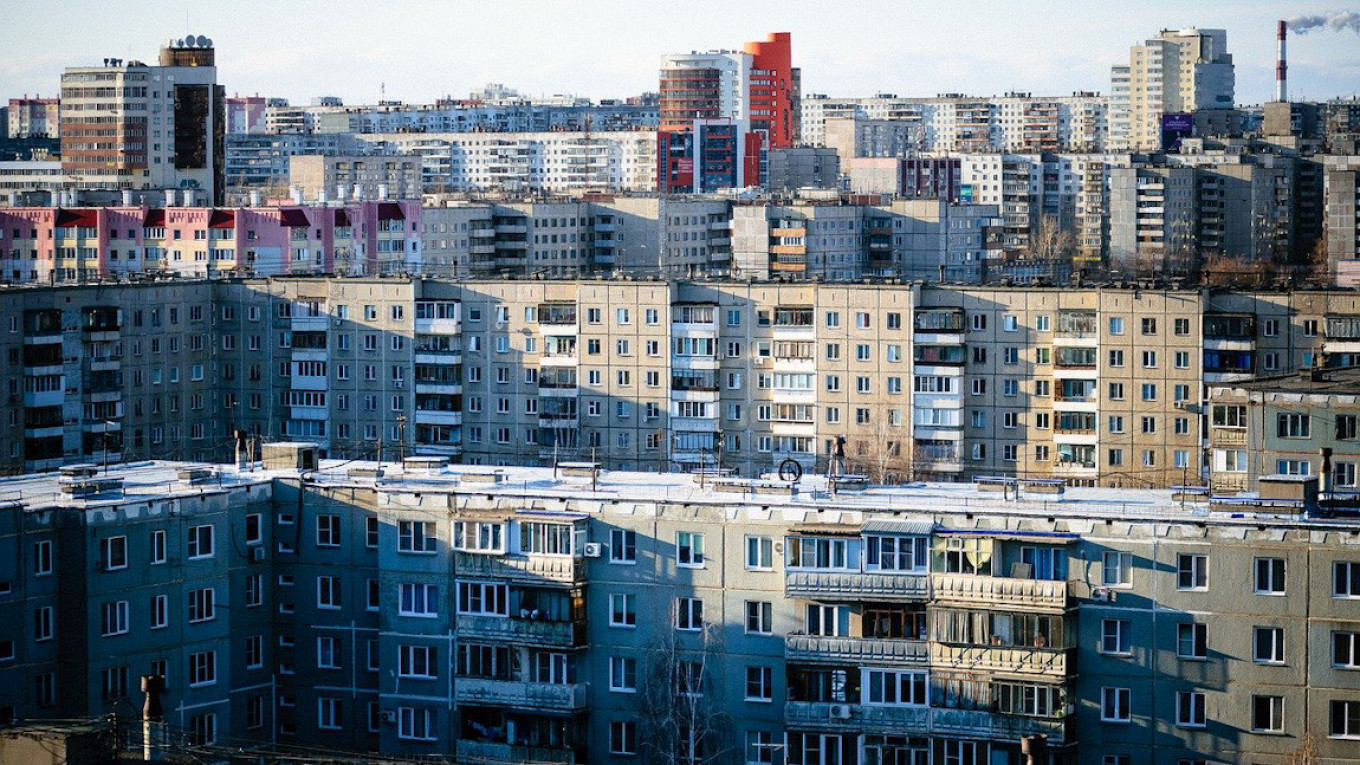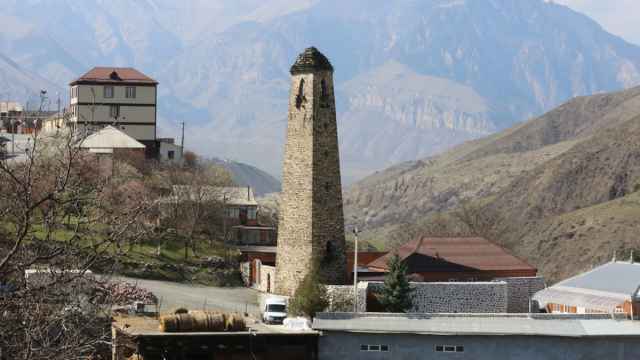Since the start of the coronavirus pandemic, many of Russia’s regions have been rocked by the shock of the extra spending needed to combat the virus — and a new debt crisis is looming.
Regional debt has always been a major headache for the Kremlin. While the federal government earns buckets of money from the export of oil, gas and metals, the regional governments on the whole have to rely exclusively on personal income and corporate profit taxes for their revenue.
At the same time, if the federal government needs to save money it can scale back military spending or play with the mineral extraction tax (MET) on raw materials to boost revenues. It is currently doing exactly that to create more cash to deal with the coronavirus shock. Regions, on the other hand, have very little wiggle room, as 70% of their outgoings are on essential public services like schools, hospitals, road repairs and fire stations.
“In a normal year, most Russian regions do not have enough income to cover their budgetary expenses, given the centralization of budget revenues over the past two decades. This means that they have to rely on federal budget transfers, borrowing, or, in most cases, both,” Andras Toth-Czifra said in a paper published by the Institute of Modern Russia titled “Russia’s pre-existing conditions” that takes an in-depth look at the state of regional debt.
In the last crisis, Russia’s Finance Ministry was forced to try to defuse a ticking time bomb of regional debt, which has been growing at an alarming rate between 2015 and 2016. At the time, the federal government was also short of cash as it struggled to fill a two trillion ruble ($26 billion) hole in its budget. It cut back harshly on federal transfers to the regions and changed the way it managed regional balance sheets — taking direct control of the worst half-dozen performers.
As the pressure eased on the federal budget as the economic recovery got underway in 2017, regional financing was then switched from expensive bank loans to soft credit from the central government.
Net regional debt began to fall over the next few years and debt servicing became manageable. Some regions even were able to amass some reserves. Regional finances also got a tech makeover which allowed for more efficient so-called “just-in-time” financing of local budget expenses.
But that setup also made the regions more dependent on the federal government too, says Toth-Czifra.
Pandemic shock
Now the coronavirus pandemic has knocked the whole system off its feet again.
Spending has soared as regions scramble to beef up healthcare facilities while also trying to offer subsidies and stimulus packages for their local economies. Even the regions that had managed to accumulate reserves found they do not have enough to fully absorb the coronavirus shock. Early this year, the reserves of 37 regions amounted to less than 5% of their income in 2019.
All the regions are being forced to turn to the center for help.
“Regions, on the whole, lost about 26% of their revenues in the first seven months of this year compared to the same period in 2019,” said Toth-Czifra. “Although regional revenues rebounded slightly in the summer, they can easily plunge again in the second wave of the pandemic.”
“Oil- and gas-producing and processing hubs, such as the Yamal-Nenets Autonomous District, Krasnoyarsk, the Astrakhan region, and the Komi Republic suffered a double whammy — the pandemic and oil price decline — and lost up to half of their revenues in the second quarter.”
The situation has somewhat improved since, but federally-mandated deferments of tax payments mean that revenues are still lagging significantly behind plans. Even wealthy regions like Tatarstan have had to rely on state guarantees to cover healthcare expenses, with the federal budget absorbing two-thirds of the republic’s tax revenues.
The federal government has transferred 2.1 trillion rubles ($28 billion) to the regions in the first half of the year — 697 billion ($9 billion) more than in the same period last year.
Moreover, the money has been unequally distributed, with politically-powerful regions taking more and the politically-weak regions getting less than they need to meet their requirements, according to Toth-Czifra.
As part of the pandemic response the Finance Ministry has eased the rules on commercial loans, but borrowing is still capped. Regions can double their debt to pay for pandemic response measures by turning to the banks, but only up to the limit of what they are allowed to borrow from the federal government.
This gives the regions scored as “green” by Moscow’s traffic-light grading-system of regional balance sheets a lot more firepower. But the worst-performing red regions are not allowed to borrow anything at all and so have been left behind.
Overall the total borrowing available to all Russian regions is effectively capped at just 74 billion rubles ($970 million) — a small amount compared to the size of the transfers already made from the center during the first eight months of this year.
Ironically these rules also encourage regions to get into as much debt as they can, as that improves their ability to borrow. Tiny Mordovia, for example, with a population of less than a million people, can borrow an extra four billion rubles ($52 million) because it was already deeply indebted to the Finance Ministry.
Moscow is still working on the problem. Russia’s tax system has already been through a drastic and highly successful reform that has seen the price a barrel of oil needs to be for the federal budget to break even fall from $115 in 2008 to around $42 today. Scams have been closed down, every cash register in the country has been hooked up to the tax ministry’s IT system and international accounting rules have been imposed on everyone. Tax reforms have now moved into a new phase where the whole mineral extraction tax (MET) regime is being overhauled and new rules for oil, gas and metals that totally change the way industry taxes are calculated and charged have been passed by the State Duma in just the last month.
Not enough
The system of regional funding has also been caught up in the Finance Ministry’s brio in recent weeks. In October, it seemingly agreed to expand regions’ rights to use funds under budgetary loan agreements, says Toth-Czifra.
“Additional funds might be redirected from the National Projects — a series of Russia’s spending priorities in 13 policy areas — the deadline for which has been pushed back by six years to 2030 and will almost certainly be refocused on the healthcare system,” Toth-Czifra wrote.
“But already some governors have indicated that these measures are still not going to be enough.”
Alexey Teksler, head of the Chelyabinsk region, called for the removal of borrowing restrictions altogether. Arkhangelsk’s Alexander Tsybulsky, who in May tried — and failed — to solve his region’s financial problems by absorbing the Nenets Autonomous District, agreed, adding that his region had received only about a third of the support it needed.
After bouncing back nicely over the summer the International Monetary Fund (IMF) recently improved Russia’s GDP outlook from an expected 6% contraction this year to only 4.4%. This was due to the strong recovery in consumption that lifted the economy.
But things started to turn again in the last week of September when infection rates surged.
A lot will now depend on the severity of the second wave.
It could well be that the second wave of the epidemic is far worse than the first wave as the winter weather closes in. In that case, Russia’s regions will find it even harder to cope with the coronavirus shock than they did in the summer.
This article first appeared in bne IntelliNews.
A Message from The Moscow Times:
Dear readers,
We are facing unprecedented challenges. Russia's Prosecutor General's Office has designated The Moscow Times as an "undesirable" organization, criminalizing our work and putting our staff at risk of prosecution. This follows our earlier unjust labeling as a "foreign agent."
These actions are direct attempts to silence independent journalism in Russia. The authorities claim our work "discredits the decisions of the Russian leadership." We see things differently: we strive to provide accurate, unbiased reporting on Russia.
We, the journalists of The Moscow Times, refuse to be silenced. But to continue our work, we need your help.
Your support, no matter how small, makes a world of difference. If you can, please support us monthly starting from just $2. It's quick to set up, and every contribution makes a significant impact.
By supporting The Moscow Times, you're defending open, independent journalism in the face of repression. Thank you for standing with us.
Remind me later.







